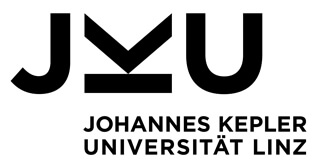Johannes Kepler University Linz (JKU)

Johannes Kepler University (JKU) – A Young University On the Road to Success
Since its inception in 1966, the JKU has become a successful and innovative center for science, academics and society. Today, the JKU has become one of the largest educational institutions in Upper Austria and enjoys an international reputation not only in conducting base-knowledge research, but also in applied-oriented research. The university offers interdisciplinary and hands-on educational programs designed to meet today’s business and society needs and our cooperation agreements with over 250 partner universities in over 50 countries as well as over 120 professors and over 1700 academic faculty ensure superior research and study conditions.
JKU researchers have won numerous awards, highlighting cutting-edge, top quality research conducted at the JKU: In the past few years, two JKU faculty members have been presented with the prestigious Wittgenstein Award, Austria’s "Nobel Prize". In 2012, this well-endowed, illustrious Austrian academic award was presented to O.Univ.Prof. Dr. Serdar Niyazi Sariciftci, head of LIOS (Linz Institute for Organic Solar Cells) and the Institute for Physical Chemistry. Computer science expert Univ.Prof. Dr. Gerhard Widmer (Institute for Computational Perception) was presented with the award in 2009. Four JKU faculty members received European accolades for their research: Assoc. Prof. Dr. Alberta Bonanni and Dr. Georgios Katsaros (Institute for Semiconductor and Solid State Physics), Univ.Prof. Dr. Thomas Klar (Institute for Applied Physics) and Univ.Prof. Dr. Siegfried Bauer (Institute for Experimental Physics) have received ERC grants, one of Europe's most important research awards. ECR grants support pioneering research in base-knowledge oriented projects.
In 2012, the "Times Higher Education 100 Under 50" ranked the JKU at 41 as one of the world’s best young universities (under 50 years). The ranking translates to #22 in Europe and #5 in German-speaking Europe.
The JKU currently offers over 60 modern academic degree programs that are constantly being updated and improved. The JKU is also a leader in Austria in the field of distance teaching and e-learning. The university has offered a multi-media program in Law since 2002. The "Multi-Media Studies Services SoWi" program - abbreviated MuSSS - allows students at the Faculty of Social Sciences, Economics & Business to complete part of their studies via distance learning. In addition, the JKU offers continuing education courses in cooperation with the FernUniversität in Hagen. The JKU is an easily navigable campus-style university offering numerous services, including campus-wide WiFi. The new JKU Science Park is also a highlight for faculty, students and partners in industry and business: modern facilities in three buildings enable cutting-edge research and teaching at the highest level.
JKU – A Center for Science, Academia and Society
In addition to "conventional" university institutes (currently about 120), an increasing number of so-called third-party institutions as well as competence centers, companies and other association institutions have developed, showing how important the JKU believes business in Upper Austria is. This includes the "Research Institute für Symbolic Computation" (RISC), the "Software Competence Center Hagenberg" (SCCH), the Institute for Applied Knowledge Processing (FAW) and the special research field "Numerical and Symbolic Scientific Computing". Competence centers such as the SCCH, ACCM (Austrian Competence Center in Mechatronics), and the Competence Center Wood work together with university institutes and both large industrial companies and outstanding small and medium-sized businesses to link academic base knowledge with industry-related research and make it beneficial to the public.